Official Says Iran Must Sell Southern Islands To Pay Pensioners' Arrears
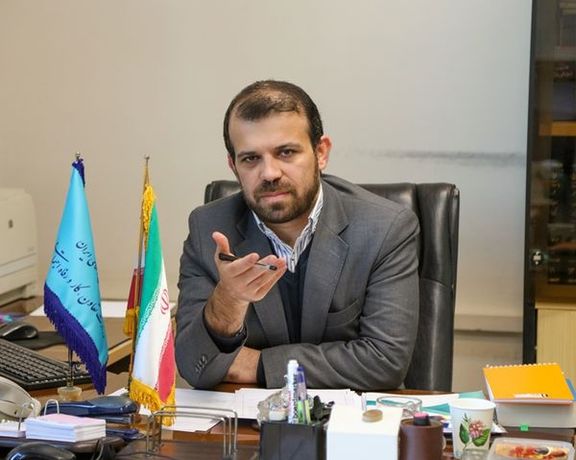
Iran is mulling the idea of selling the two southern islands of Kish and Qeshm and Khuzestan province to pay pensioners' arrears.

Iran is mulling the idea of selling the two southern islands of Kish and Qeshm and Khuzestan province to pay pensioners' arrears.
The director general of social insurance in Iran’s Ministry of Labor, Sajjad Padam, said: “Even if we sell two to three million barrels of oil with sanctions removed, we still cannot solve the pensioners' issues."
The Iranian government is facing a major challenge to pay pensioners arrears and raise minimum wage enough to meet the rising cost of living in a crippling financial crisis, leaving many elderly citizens without the money they need to survive.
The total amount of claims of pension funds by the end of 2020 was more than 501 thousand billion tomans (nearly 9 billion USD).
In recent months, protest rallies have been staged by workers and retirees in various cities to show anger at the regime's inability to address their issue.
According to the most recent census, there are nearly six million pensioners living in Iran. This number has been steadily increasing in recent years, as more and more people reach retirement age.
Iran’s retirement age is 60 for men and 55 for women but over half (55%) of senior citizens do not receive pensions and over one third (35%) of them live below the poverty line.
In 2021, The Supreme Audit Court of Iran said that 89% of retirees have a monthly salary of between 50 and 100 million rials (200 to 300 USD) which is believed to be much lower now since the rial tumbled to all time lows.
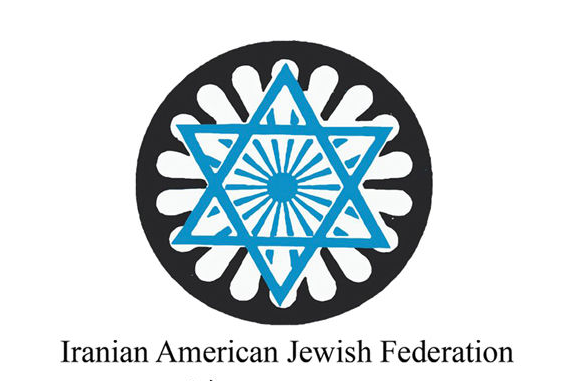
A US Jewish federation has slammed a letter by Israeli MPs to advocate for the separation of Iran’s Azarbaijan region, as most of the signatories rescinded their signatures.
In a joint open letter to Israeli foreign Minister Eli Cohen on Sunday, the Iranian American Jewish Federation of New York and Los Angeles called the letter signed by 32 members of the parliament (Knesset) “ill-advised”.
They have underlined that the authors of the letter are clearly misguided in thinking that such advocacy “will deliver a hard blow” to the regime in Tehran, which has been putting pressure on Azerbaijan since its opening of an embassy in Israel in March.
“This could further destabilize the region, create additional threats to Israel, and damage the current security structure to an irreversible and irreparable degree,” warned the federation, which claimed to support Iran’s territorial integrity.
The parliamentarians’ letter is further advocacy to deal a blow to Tehran and show support to its ally Azerbaijan but such meddling in the country’s foreign affairs has not been welcomed by Iranian Jews in the US.
The letter claims: “Any attempt, by any entity, foreign or domestic, to sever portions of the country will compel the Iranian people to rally around the flag. Any such entity will be considered an enemy of the Iranian nation, not just its government.”
In another part of the letter, it has been noted that although Iran has several ethnic regions, each with its own small separatist movement, any attempt towards the country’s fragmentation could result in the creation of radical and hostile states.
The US group asserted that the misplaced concern is not a matter for comment from the state of Israel, urging Cohen to publicly announce his stance on the matter.
Later on Tuesday, Israeli Intelligence Minister Gila Gamliel tweeted in Hebrew and Persian that she had “convinced most of the Israeli parliamentarians to rescind their signature from the letter.”
“Fighting against a religious extremist regime is the common desire of many nations, and we must always continue this way," Gamliel said, sharing a document with signatures of about 20 lawmakers who said they “express their disapproval of the establishment of a state in part of the territory of Iran for the Azeri minority.”
Earlier, Prince Reza Pahlavi and diaspora political group Solidarity for a Free Iran also slammed the letter.
The diaspora political group (7th Aban Front in Persian) said the Knesset members’ letter regarding “the Azeri minority” in Iran is “a clear case of action against Iran's existence”. “Solidarity for a Free Iran considers this letter a hostile act against the Iranian nation and strongly condemns it,” the statement said, adding that “the letter of these Knesset members is in sheer contradiction with the statements made by Israeli government officials regarding friendship between the two nations of Iran and Israel during the recent visit of Prince Reza Pahlavi,” Solidarity for Free Iran said.
“The verbal assault on Iran’s territorial integrity by 32 members of the Israeli parliament is completely unacceptable and a service to the interests of the anti-Iranian Islamic Republic regime,” Pahlavi said.
Following Cohen's recent state visit to Azerbaijan, the Knesset members asked the Israeli government to “pressure Iran to stop oppressing the Azeri minority in northwest Iran” and called for separation of what they called South Azerbaijan from Iran.
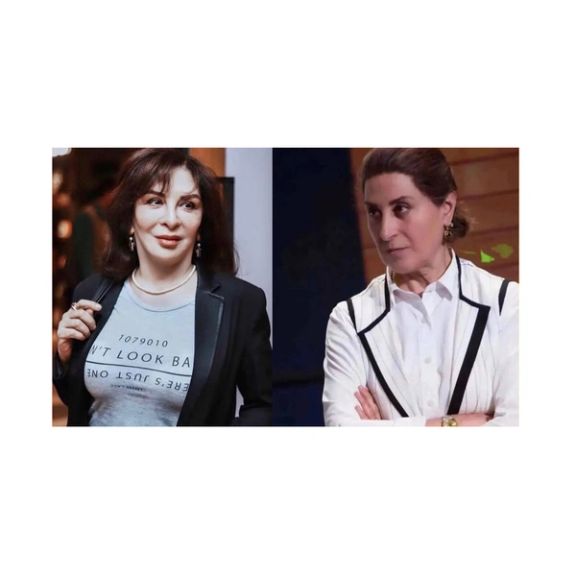
A case has been filed against two of Iran’s leading actresses who recently attended a ceremony without the mandatory hijab.
Tehran Police said Afsaneh Bayegan and Fatemeh Motamed Arya, legends of Iranian film and television, will now be investigated by the judiciary. If found guilty, the two women could face harsh prison sentences along with thousands of other protesters since September.
The case was filed after they appeared in public without the headscarf on Sunday night at a ceremony to honor actor Atila Pesyani.
At the ceremony, prominent Iranian cinema star Reza Kianian spoke of women’s right to refuse the headscarf, made mandatory since the Islamic Republic in 1979.
The government has refused to back down on its crackdown against the mass rebellion across the country, several businesses closed down for not enforcing rules imposed by the regime.
Celebrities and footballers supporting the protests have been singled out with businesses closed down, travel bans, bank accounts being frozen and restricting access to communications.
It comes after a wave of famous faces have used their social media accounts to voice their support for the protests that began in mid-September following the death of Mahsa Amini in police custody.
Many other artists and athletes, including popular Golab Adineh, Katayoun Riahi, and Pantea Bahram have also refused to wear the hijab in public and published photos of themselves casting off their headscarves on social media.
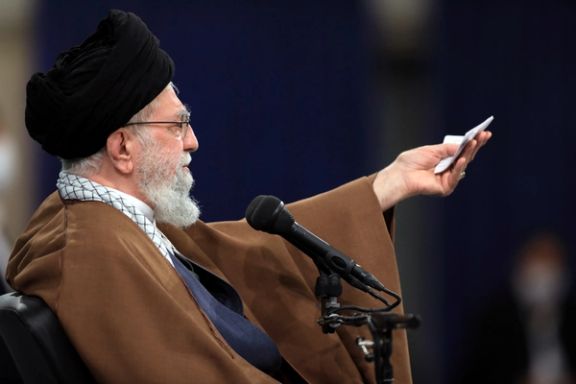
A former ally and now vocal opponent of the Supreme Leader says Ali Khamenei’s insistence on hijab enforcement is a bid to keep him popular among the hardliners.
Abolfazl Qadyani (Ghadyani), a staunch revolutionary in the 1970’s and 80’s and become a critic of Khamenei after the Green Movement, said in an article on Monday that the relentless hijab crackdown is “political haram”, branding the regime as “illegitimate rule”.
He coined the term “politically haram” from a speech given by Supreme Leader Ali Khamenei on April 4 when he said “discarding hijab is haram (sin) based on Sharia and also politically”, emboldening officials to embark on stricter measures.
Green Movement, also referred to as the Persian Awakening or Persian Spring by the western media, refers to a political movement that arose after the June 2009 presidential election and lasted until early 2010 in which people were protesting against the results of the rigged election that kept Mahmoud Ahmadinejad in office.
It was the biggest revolt against the regime until the current wave of uprising ignited by the death in custody of 22-year-old Mahsa Amini. Ahmadinejad’s main rival Mir-Hossein Mousavi has been under house arrest since 2011.
“His insistence on imposing hijab has only one reason: seeking legitimacy in the body of the religious-traditional part of Iranian society,” Ghadiani said.
The former revolutionary and an ex-comrade in arms of Khamenei said that the Supreme Leader "knows well that the achievement of his 30-year-old rule was nothing but the spread of poverty, injustice, corruption, and economic, political, and judicial banditry."
Ghadiani, who was a political prisoner both during the monarchy and the Islamic Republic, claims that Khamenei seeks to project this idea among a small fraction of the religious community, who still trusts the Islamic Republic is redeemable.
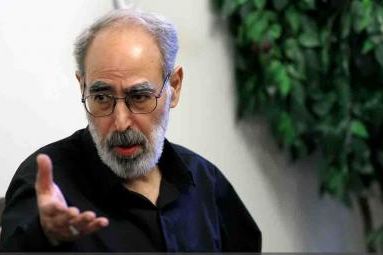
"Women whose hijab is not their personal choice will not give in to such an illegitimate and unreasonable whim, even if the regime growls and closes businesses and drags women and men to the court of justice," he said.
He and his comrades helped the clerics consolidate power 43 years ago. But he became a critic of Khamenei when in 2009 the Supreme Leader backed the disputed official results of the presidential election that kept Mahmoud Ahmadinejad in office, and triggered months of protests.
Ghadiani, who in the past believed in reforming the Islamic Republic, said earlier in the year that “Reforms are not possible,” arguing that the reform movement failed to produce any results in 25 years. “Ebrahim Raisi, an illiterate murderer has become president.”He also said that Islamic Republic’s ruling class “is unique in corruption and exporting corruption among its peers and tyrants around the world. They have turned religion into a tool for repression.”
Several figures who used to be proponents of the regime have started criticizing the Islamic Republic in recent months, especially following September 2022, when the “Women, Life, Freedom” movement began. The regime has killed well over 500 people and arrested nearly 20,000 protesters to prove that it did not kill Mahsa Amini.
Iran’s Sunni leader Mowlavi Abdolhamid, who has been delivering historic speeches every Friday in the past several months, said earlier in the day that "If the solution to people's problems is to arrest and detain, then arrest and imprison all of us.”
“If the people's problems are solved by arresting the protesters and politicians, I request them to hand themselves over to the prison so that the people's problems are solved," he said.
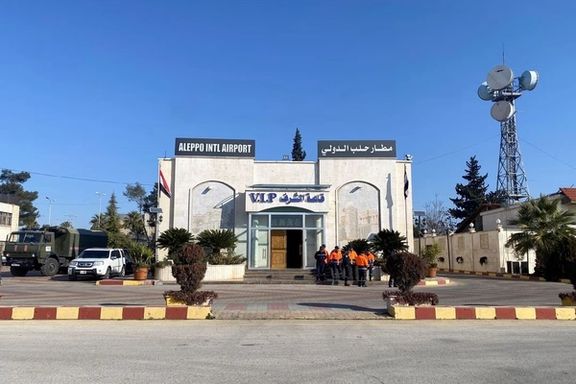
A soldier has been killed and seven others wounded, including 2 civilians, in an Israeli airstrike on Aleppo Airport on the eve of the Iranian president’s visit to Syria.
According to Syria's state news agency, SANA, Israeli warplanes attacked the airport and other sites near the city on Monday night, leaving the airport out of service.
The symbolic attack, one of a series in recent years in the shadow war between Israel and Iran, comes right before Iranian President Ebrahim Raisi travels to the Arab country at the official invitation of the Syrian president for a two-day visit.
Raisi’s visit is the first by an Iranian president since the start of Syria's civil war in 2011.
SANA claims Syrian air defense intercepted several incoming missiles following the Israeli invasion, a frequent claim by Damascus questioned by military analysts.
Israel has been attacking what it has described as Iran-linked targets in Syria since 2017, to prevent Islamic Republic forces getting entrenched near its northern borders and weapons reaching the Lebanese Hezbollah.
Iran intervened in the Syrian civil war as early as 2011 to defeat a rebellion against strongman Bashar Al-Assad.
Iran says its officers serve in an advisory role in Syria at the invitation of Damascus. Hundreds of Iranian forces and thousands of proxy militiamen including senior officers have been killed in Syria during the war.
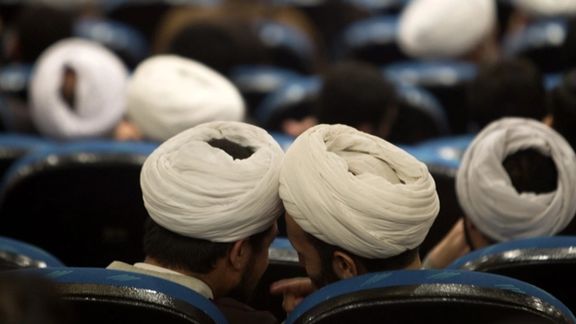
Following three attacks on clerics in Iran in less than one week, Chief Justice Gholamhossein Mohseni Ejei called for swift and strict measures against the attackers.
Conservative Nameh News quoted Ejei as saying, "The enemies are hatching conspiracies to undermine Iran's security," but he did not say who the enemies were.
Several Iranian politicians and journalists had warned earlier that the government's violent treatment of Iranian protesters will entail similar reaction by the people.
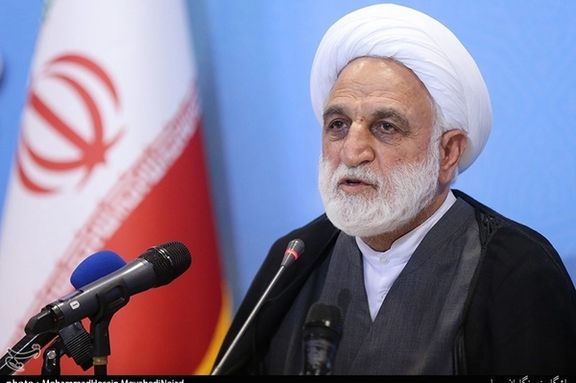
On April 26, a guard at a bank in Babolsar by the Caspian Sea shot Abas Ali Soleimani, a high-ranking cleric who was a member of Iran's Assembly of Expert and a former provincial representative of Supreme Leader Ali Khamenei. The cleric died instantly but the case remains a mystery.
His family say he was at the bank to transfer some money, but social media users say one does not need to go to a bank to transfer money. Another account of the event indicates that the guard, a former policeman killed the cleric when he found out that he was waiting to withdraw a huge amount of money. According to witnesses on the scene the frustrated former policeman was having financial problems and was angry about inequalities in society.
Later, another cleric, a young man was run over by a car and was dragged in the streets for quite a while before the driver steered away and escaped.
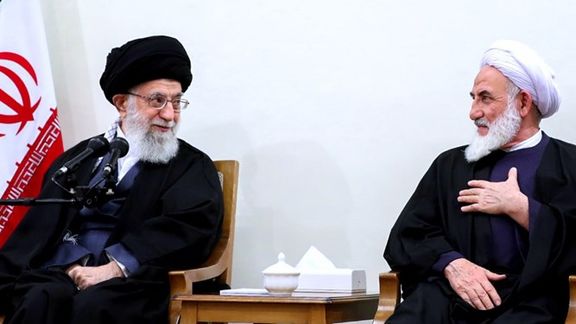
In one of the latest violent events against clerics, early in the morning of April 29, a car ran over two seminary students [clerics] at a bus stop in in Qom. Subsequently, the driver came out and stabbed one of the clerics. The stabber then attacked the police and wanted to disarm them, but he was finally arrested by the "brave policemen."
There is also an unconfirmed anecdotal account of two other clerics who were tied up to a tree and harassed by youngsters in Qaleh Hassan Khan in southwest Tehran.
A cleric in Qom, Alavi Boroujerdi, has criticized the government for creating the divide between the people and the clerics. He reiterated that the government has made mistakes.
He told state officials, "Do not say anything to annoy the people. It is unthinkable to see a cleric being run over in the street in a religious city such as Qom and then stabbing the poor man to make sure that he is badly wounded. Is this the way the people used to treat us?" asked Alavi Boroujerdi.
Chief Justice Ejei told Judiciary officials, "do not waste any time as soon as the attackers have been arrested, make them taste justice!" This was exactly the kind of words Boroujerdi advised officials to avoid if they do not wish to annoy the people.
During previous weeks, while the government was keen to enforce compulsory hijab rules as women defied the imposed lifestyle and took to the streets, many clerics, particularly those in the government used vulgar words about Iranian women and some politicians such as the hard-line editor of Kayhan daily, Hossein Shariatmadari, suggested that unveiled women should be deprived of the social rights and their ID cards should be confiscated.
Among those who criticized Shariatmadari for the comment was a female adviser to President Ebrahim Raisi, Sakineh Sadat Pad who called the suggestion "illegal."